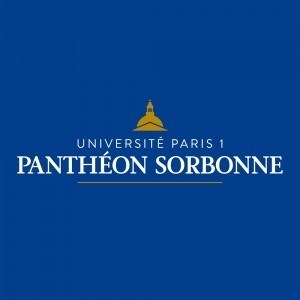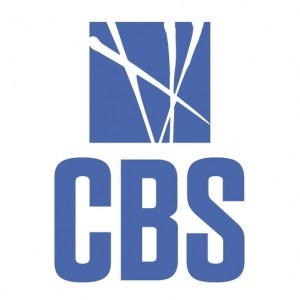Photos of university / #paris1pantheonsorbonne
Economics at Pantheon-Sorbonne University offers students a comprehensive and rigorous education in the fundamental principles and contemporary issues of economic theory and practice. This program aims to develop critical thinking, analytical skills, and a deep understanding of both microeconomic and macroeconomic phenomena. Students will explore topics such as market dynamics, economic policy, financial systems, international trade, and development economics, preparing them for diverse careers in public institutions, private sector, research, and academia.
The curriculum combines theoretical foundations with practical applications, emphasizing quantitative methods, data analysis, and economic modeling. Throughout the program, students engage with real-world case studies and engage in research projects to enhance their problem-solving abilities. The program also offers opportunities for specialization in areas like finance, public economics, or international economics, allowing students to tailor their studies to their interests and career goals.
Enrolled students benefit from the university’s extensive academic resources, access to cutting-edge research, and a vibrant academic community. The faculty members are distinguished experts in their fields, providing mentorship and guidance throughout the academic journey. Additionally, the program encourages internships and partnerships with local and international organizations, enabling students to gain practical experience and establish professional networks.
Graduates of the Economics program at Pantheon-Sorbonne University are well-equipped to pursue careers in economic analysis, policy advisory, banking and finance, international organizations, and research institutions. They also possess the skills necessary for advanced studies or doctoral research. With its strong emphasis on theoretical rigor and practical relevance, this program prepares students to understand and influence economic decisions at local, national, and global levels, fostering a new generation of informed and responsible economic practitioners.
The Economics program at Pantheon-Sorbonne University offers students a comprehensive and rigorous education in the fundamental principles and advanced theories of economics. Designed to prepare graduates for diverse careers in academia, public policy, finance, consulting, and international organizations, the program emphasizes critical thinking, quantitative analysis, and a deep understanding of economic mechanisms shaping both national and global markets. Throughout the course, students explore a wide range of topics including microeconomics, macroeconomics, econometrics, development economics, public economics, and international economics. The curriculum integrates theoretical foundations with practical applications, encouraging students to develop analytical skills essential for policy analysis and decision-making.
Students engage with case studies, research projects, and seminars led by leading economists, fostering an environment of interactive learning and intellectual inquiry. The program also offers opportunities for specialization in areas such as finance, economic policy, or international trade, enabling students to tailor their education to their career goals. In addition to classroom instruction, students gain valuable experience through internships and collaborative projects with industry partners. The program's faculty comprises renowned experts committed to mentoring students and conducting cutting-edge research that influences economic thought and practice worldwide. Graduates of the Economics program at Pantheon-Sorbonne University are well-equipped to pursue advanced studies or enter competitive job markets in various sectors, contributing to economic analysis and policymaking at local, national, and international levels.
The Bachelor's Degree in Economics at Pantheon-Sorbonne University typically requires students to complete a comprehensive curriculum designed to provide a solid foundation in economic theory, quantitative methods, and applied economics. Students are expected to undertake a series of core courses in microeconomics, macroeconomics, econometrics, and economic policy, which are essential for understanding the functioning of markets and economic systems. In addition to theoretical coursework, students participate in quantitative training, including statistics, mathematical methods, and data analysis, to develop strong analytical skills necessary for research and policy analysis. Elective courses may include specialized fields such as development economics, environmental economics, financial economics, or international economics, allowing students to tailor their studies to their interests and career goals.
Throughout the program, students are encouraged to acquire practical experience through internships, seminars, and research projects, which enhance their understanding of real-world economic issues. The program emphasizes the development of critical thinking, research competencies, and effective communication skills, preparing graduates for careers in academia, public administration, banking, consulting, or international organizations. To complete the program, students must earn a specified number of ECTS credits through coursework, examinations, and practical activities, culminating in a thesis or final project that demonstrates their ability to analyze complex economic problems. Admission requirements typically include a relevant secondary education diploma and fulfilling specific academic criteria, with some consideration given to standardized exam results or interviews. Overall, the program aims to produce well-rounded economists equipped with both theoretical knowledge and practical skills to address contemporary economic challenges.
The financing of the Economics program at Pantheon-Sorbonne University is designed to accommodate a wide range of students, including domestic and international applicants. Tuition fees vary depending on the student's status, with standard rates established by the French government for public university programs. For French and European Union students, the annual tuition fee typically ranges around 170 euros for undergraduate levels, reflecting France's commitment to accessible higher education. Non-EU international students may pay higher fees, which can vary but generally are set at approximately 2,770 euros per year for undergraduate programs. These fees are intended to support various university services, including academic resources, student life, and research activities.
In addition to tuition, students are responsible for additional expenses related to their studies, such as registration fees, health insurance, and living costs. The cost of living in Paris, where Pantheon-Sorbonne University is located, is significant, and students often seek financial aid or scholarships to support their studies. The French government offers several scholarship schemes for international students, including the Eiffel Excellence Scholarship Program, which provides financial support for master's and doctoral students, and the French Ministry of Foreign Affairs' scholarship programs. The university itself also offers various financial aid options, including grants and bursaries for eligible students.
Students may also consider student loans, which are available through French banks and financial institutions. These loans typically require a co-signer and may have specific eligibility criteria. Many students combine funding sources, including personal savings, family support, scholarships, and loans, to finance their education effectively. Furthermore, students engaging in part-time work are permitted to work up to certain hours per week, providing additional income to cover living expenses. The university’s career services often assist students in finding internships and part-time jobs, helping to alleviate financial burdens. Overall, the financing of the Economics program at Pantheon-Sorbonne is structured to ensure that students can access quality education while having multiple avenues for financial support.
The Economics program at Pantheon-Sorbonne University, also known as Paris 1 Panthéon-Sorbonne, offers a comprehensive curriculum designed to provide students with a solid foundation in economic theory, quantitative methods, and real-world applications. This program aims to equip students with critical analytical skills needed to understand and analyze complex economic issues at local, national, and international levels. The program typically features a blend of core courses in microeconomics, macroeconomics, econometrics, and economic policy, along with elective courses allowing students to specialize in areas such as development economics, financial economics, or public economics. Students are encouraged to engage in internships, research projects, and seminars to deepen their understanding of economic phenomena and to link theoretical knowledge with practical experience. The program's faculty comprises renowned economists and researchers dedicated to providing high-quality education and fostering academic inquiry. Graduates of this program are prepared for careers in various sectors including government, finance, consulting, and international organizations, or for further study in master's and doctoral programs. The program emphasizes the development of critical thinking, quantitative analysis, and effective communication skills, essential for success in competitive professional environments. Courses are often taught in French, with some modules available in English, reflecting the university’s bilingual education environment. The university's strong connections with the economic and political sectors in France and abroad provide students with valuable opportunities for networking and career advancement. Overall, the Economics program at Pantheon-Sorbonne University offers an academically rigorous and practically relevant education, fostering the intellectual growth and professional competencies required for effective economic analysis and policy-making.










